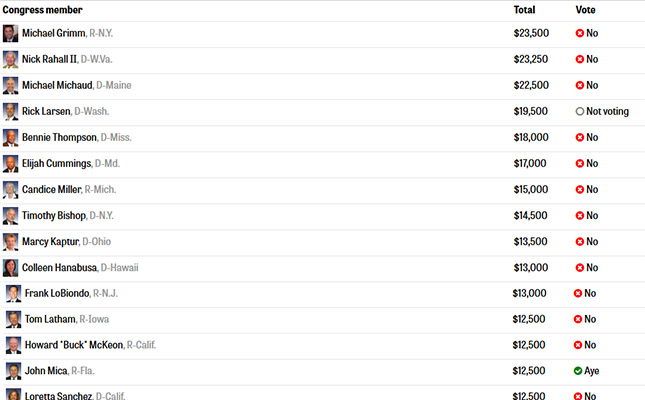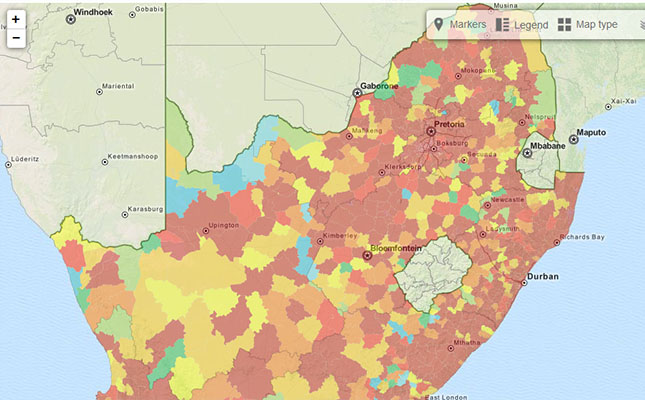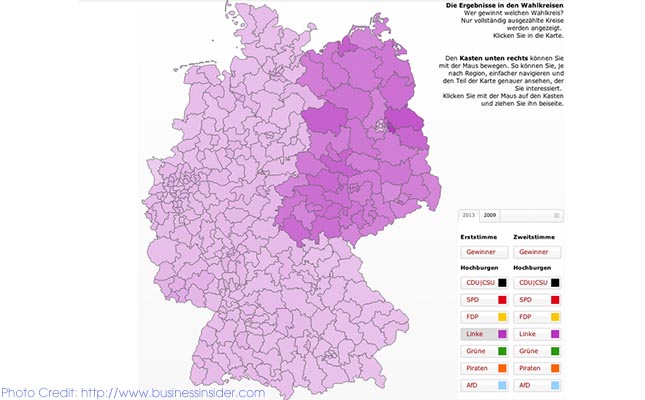In the Center for Public Integrity’s How shipping unions sunk food aid reform journalists used data to investigate a hunch: someone was intentionally torpedoing efforts to fix the United States’ broken food aid policy.
Under US current law, all food aid sent around the world has to be grown in the US, sent to recipient countries on US ships and is usually given away for free. This systems wastes money and is bad for the local economy of recipient countries who have to compete with a donor giving away free food.
This investigation combines old-fashioned investigation with data journalism to identify a chain of corruption. The journalists had access to reports that the current system was inefficient. It also had the voting records of all the members of Congress. So the journalists knew who was voting against the bill, they just didn’t know why.
To find out why, they developed a list of groups who have been traditionally opposed to changing the system because they didn’t want to lose money: US farmers, US humanitarian groups, and the US transportation industry. Next, they found all the unions that represent these groups and looked up their record of financial contributions to politicians.
By crossing just two data sets: the voting records of member of the House of Representatives for and against the bill, and the campaign donations made by unions to congressmen, the journalists could see that the more money the politicians received from shipping unions, the more likely they were to vote against the bill.
The story has even more data and more investigation — from just how much many more people could be fed under the new system, how the shipping company charges both a high fee and receives government subsidies, and how few shipping jobs would actually be lost under reform—to prove just how harmful the current system is for people who are in desperate need of aid.
Kenya, which received an enormous amount of food aid to support Somali refugee camps, would potentially benefit from a new system. Food aid reform might mean that the US would buy food to feed refugees from Kenyan farmers, boosting local agriculture. It also might also lead to an investigation of how global aid to refugee camps in Kenya contribute to the local economy and the impact if the camps were shut down.




